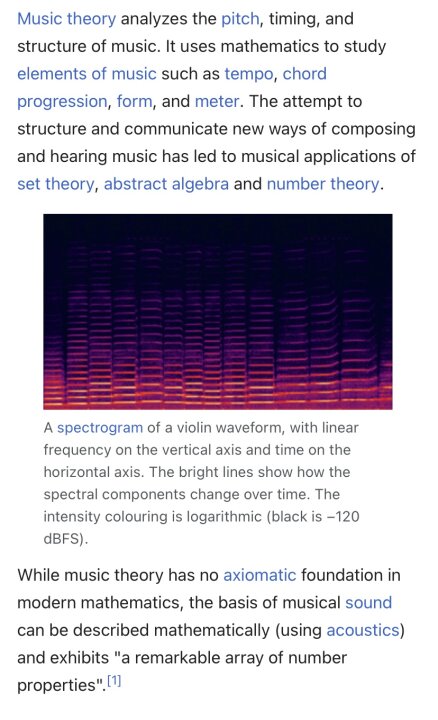hartfire · 61-69
An elegant algorithm has all the beauty of poetry to a mathematician.
Likewise, they can find awe and beauty in the mathematical structures in nature.
We all have far more to us than just one thing.
A mathematician is always much more than just numbers person,
and most can always find plenty to talk about, ask and listen to.
Likewise, they can find awe and beauty in the mathematical structures in nature.
We all have far more to us than just one thing.
A mathematician is always much more than just numbers person,
and most can always find plenty to talk about, ask and listen to.
DrWatson · 70-79, M
@hartfire I have found that in general, mathematicians are reasonably well versed in the humanities, and many participate in the performing arts, especially music. But people in the arts and humanities are less prone to see the beauty of mathematics. The irony is that they believe it is the mathematicians who are aesthetically challenged.
Mamapolo2016 · F
A great deal of poetry is built on the foundation of math. Same with music.
hartfire · 61-69
@Mamapolo2016
I'm not sure how true that is - if so, it would be in rather obscure ways.
Can you give me an example? or even a few? I'd be fascinated.
Iambic pentameter, the most natural rhythm for English poetry, is not mathematical. The sequence of five pairs of syllables - the first of the pair unstressed and the second stressed - just involves very simple counting - no equations.
Great poetry doesn't work to formulas, or it transcends them;
the moment a poem becomes predictable it turns into doggerel.
I'm not sure how true that is - if so, it would be in rather obscure ways.
Can you give me an example? or even a few? I'd be fascinated.
Iambic pentameter, the most natural rhythm for English poetry, is not mathematical. The sequence of five pairs of syllables - the first of the pair unstressed and the second stressed - just involves very simple counting - no equations.
Great poetry doesn't work to formulas, or it transcends them;
the moment a poem becomes predictable it turns into doggerel.
Mamapolo2016 · F
hartfire · 61-69
@hartfire I think of simple counting as the start of learning arithmetic in primary school or kindergarten.
Mathematics starts when one gets into equations more complex than just addition, subtraction, multiplication and division.
It is the abstract science of number, quantity, and space, either as abstract concepts (pure mathematics), or as applied to other disciplines such as physics and engineering (applied mathematics).
Yes, music theory definitely involves applied mathematics - and is fascinating. I once did an introductory course in it at the University of New South Wales. The laboratory and its equipment were awesome, and so was the lecturer - so many experiments showing how music works the way it does.
And even more amazing when one discovers it works equally well with the different tone, pitch and rhythmic signatures of other cultures.
But poetry has been one of my main studies these last six years and, so far, I've found nothing in it that I'd call mathematical.
I do know of a Latin novelist who uses mathematical themes in his magical realism - a real head-spinner.
And I remain open to hearing of or discussing any poem, or poet, that works via or with math. That would amaze and mesmerize me.
Mathematics starts when one gets into equations more complex than just addition, subtraction, multiplication and division.
It is the abstract science of number, quantity, and space, either as abstract concepts (pure mathematics), or as applied to other disciplines such as physics and engineering (applied mathematics).
Yes, music theory definitely involves applied mathematics - and is fascinating. I once did an introductory course in it at the University of New South Wales. The laboratory and its equipment were awesome, and so was the lecturer - so many experiments showing how music works the way it does.
And even more amazing when one discovers it works equally well with the different tone, pitch and rhythmic signatures of other cultures.
But poetry has been one of my main studies these last six years and, so far, I've found nothing in it that I'd call mathematical.
I do know of a Latin novelist who uses mathematical themes in his magical realism - a real head-spinner.
And I remain open to hearing of or discussing any poem, or poet, that works via or with math. That would amaze and mesmerize me.
DrWatson · 70-79, M
I am a mathematician and I read poetry.
I think the universe is the most magical of all if we can integrate poetic and scientific thinking into a beautiful whole.
In my experience, mathematicians in general are rather relaxed people, not uptight at all.
I think the universe is the most magical of all if we can integrate poetic and scientific thinking into a beautiful whole.
In my experience, mathematicians in general are rather relaxed people, not uptight at all.
Numbers are way more magical.






